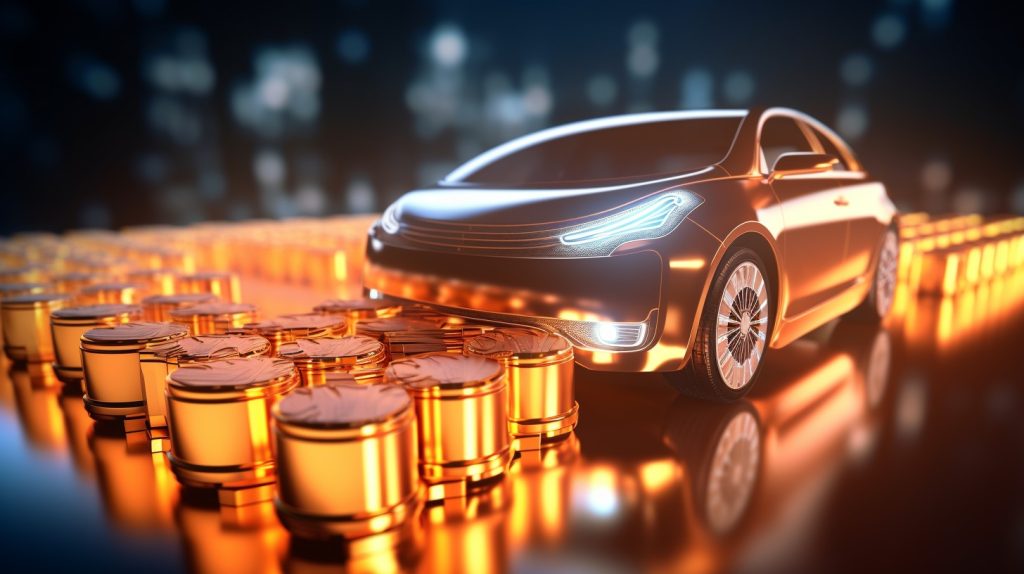The automotive industry has been witnessing a steady shift towards electrification, and major players like Toyota are at the forefront of this transition. In a recent announcement, Toyota unveiled its battery technology roadmap, outlining its commitment to developing solid-state batteries for electric vehicles (EVs). This breakthrough has sparked a wave of excitement, but what exactly are solid-state batteries, and how could they revolutionize the EV market?
Understanding Solid-State Batteries
Traditional lithium-ion batteries, commonly used in smartphones and electric cars, rely on liquid electrolytes to facilitate the flow of ions between the electrodes, generating an electric current. In contrast, solid-state batteries replace the liquid electrolyte with a solid material. This concept is not entirely new, as solid-state batteries have been used in small electronic devices such as pacemakers and RFID tags. However, their widespread adoption in larger-scale applications has been hindered by manufacturing challenges and high costs.
The potential benefits of solid-state batteries are substantial. These batteries can withstand extreme temperatures, making them suitable for use in various conditions. Their high resistance to heat also enables faster charging compared to lithium-ion batteries. Additionally, solid-state batteries offer higher energy densities, allowing for more power storage within the same weight. Another advantage is their structural stability, which eliminates the need for bulky and volatile liquid electrolytes, making them thinner and smaller than existing lithium-ion systems.
Toyota’s Breakthrough in Solid-State Battery Technology
Toyota’s recent announcement has generated significant buzz, particularly due to its focus on a breakthrough in solid-state battery technology. While specific details regarding this breakthrough remain limited, Toyota has partnered with Idemitsu Kosan, a prominent Japanese oil refiner, in their pursuit of commercializing and mass-producing solid-state batteries that employ sulfide electrolytes.
Toyota’s ambitious goal is to develop solid-state batteries with a range of over 1,200 kilometers and a charging time from 10% to 80% in less than 10 minutes. In comparison, the Tesla Model Y currently offers a range of 542 kilometers and takes approximately 27 minutes to fast-charge. Toyota’s roadmap suggests that commercial batteries could be available by 2027-2028, followed by mass production in the subsequent years.
The key challenge in solid-state battery development lies in maintaining optimal contact between the electrodes and the electrolyte, preventing cracks that can limit battery lifespan. During a press conference, Toyota’s President and CEO, Koji Sato, hinted at overcoming this challenge by referring to a “highly flexible, adhesive, and crack-resistant solid electrolyte” resulting from the collaboration between Toyota and Idemitsu. This breakthrough paves the way for both performance and durability in solid-state batteries.
Solid-State Batteries: A Global Pursuit
While Toyota leads the charge in solid-state battery research, other automakers are also actively exploring this technology. Companies like Hyundai, Kia, and Honda have initiated their own solid-state battery research programs, albeit with fewer patent filings compared to Toyota. Nissan and Honda have also expressed their commitment to solid-state battery development. Furthermore, automakers such as Volkswagen, Ford, BMW, and Mercedes-Benz are collaborating with external battery manufacturers to explore solid-state battery applications.
Implications of Solid-State Batteries
If the manufacturing challenges associated with solid-state batteries can be overcome, the implications for various industries are immense. While Toyota primarily focuses on using solid-state batteries in cars, these batteries could find applications in e-bikes, commercial vehicles, and even home energy storage systems. Transitioning trucks, buses, and ships, which currently heavily rely on fossil fuels, to solid-state batteries would significantly reduce emissions and promote cleaner transportation.
Solid-state batteries also have the potential to revolutionize the aviation industry. NASA, for instance, is conducting research on sulfur-selenium solid-state batteries for aircraft use. Although this application may be further from commercialization compared to road vehicles, it highlights the wide-ranging possibilities of solid-state battery technology.
The Future Outlook
As exciting as the potential of solid-state batteries may be, it is crucial to approach this technology with caution. While solid-state batteries could reduce our reliance on critical minerals and contribute to a greener future, they might inadvertently become an excuse to delay taking broader societal action against climate change. It is essential to acknowledge that the development of solid-state batteries alone cannot address the urgent need for sustainable transportation and a significant reduction in greenhouse gas emissions.
In conclusion, solid-state batteries have the potential to revolutionize the electric vehicle industry. Toyota’s breakthrough in solid-state battery technology brings us closer to achieving long-range EVs with rapid charging capabilities. However, further research and development, as well as collaborations with various stakeholders, are necessary to overcome manufacturing challenges and ensure the widespread adoption of solid-state batteries. As the industry continues to innovate, it is essential to prioritize sustainability and consider the broader societal implications of these advancements in battery technology.

